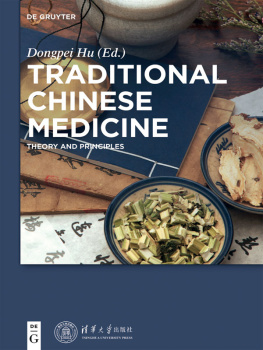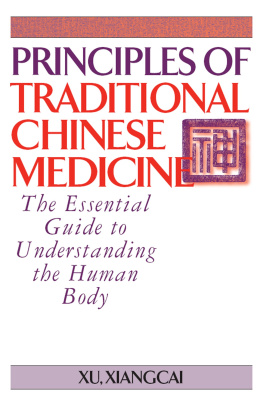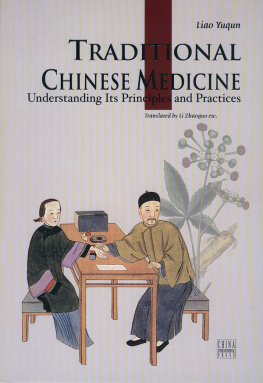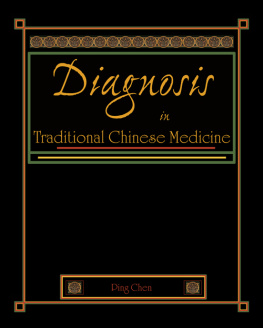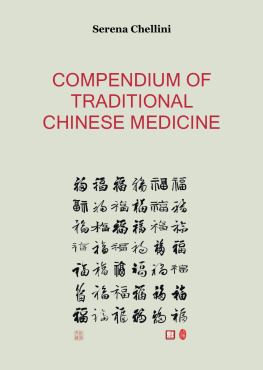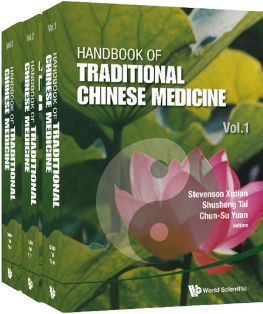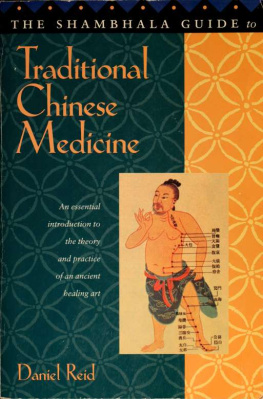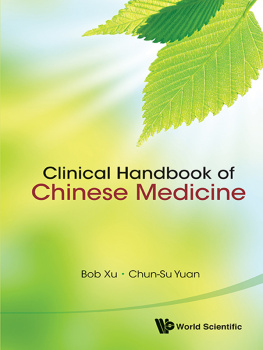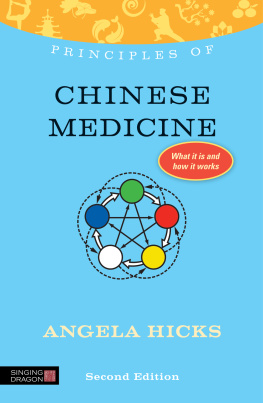Contenido
Hu Dongpei (Ed.)
Traditional Chinese Medicine

This work is co-published by Tsinghua University Press and Walter de Gruyter GmbH.
Contributors Committee
| Editor-in-Chief: | Hu Dongpei |
| Chinese Chief Reviewer: | Li Qizhong |
| English Chief Reviewer: | Portia Barnblatt |
| Assiociate Chief Editors: | Zhang Ting, Xie Ning |
| Editors (in alphabetical order of surnames): |
| Cheng Liguo (Medical College of JiNan University) |
| Hu Dongpei (Shanghai University of Traditional Chinese Medicine) |
| Ji Lijin (Fujian University of Traditional Chinese Medicine) |
| Li Jing (Anhui College of Traditional Chinese Medicine) |
| Li Qizhong (Shanghai University of Traditional Chinese Medicine) |
| Li Xiaoqian (Shanghai University of Traditional Chinese Medicine) |
| Liang He (Henan College of Traditional Chinese Medicine) |
| Liu Xiaoyan (Changchun University of Traditional Chinese Medicine) |
| L Zhiping (Southern Medical University) |
| Ma Shuran (Beijing University of Traditional Chinese Medicine) |
| Meng Jingyan (Tianjin University of Traditional Chinese Medicine) |
| Ni Xianghui (Guiyang College of Traditional Chinese Medicine) |
| Portia Barnblatt (America College of Traditional Chinese Medicine) |
| Shi Jianmei (Shanxi College of Traditional Chinese Medicine) |
| Wang Yingxiao (Shanghai University of Traditional Chinese Medicine) |
| Xie Ning (Heilongjiang University of Traditional Chinese Medicine) |
| Yu Ling (Shanghai University of Traditional Chinese Medicine) |
| Zhang Qingxiang (Shandong University of Traditional Chinese Medicine) |
| Zhang Ting (Shanghai University of Traditional Chinese Medicine) |
| Zhu Manjia (Chengdu University of Traditional Chinese Medicine) |
ISBN 978-3-11-041729-6
e-ISBN 978-3-11-041766-1
e-ISBN (EPUB) 978-3-11-041780-7
Library of Congress Cataloging-in-Publication data
A CIP catalog record for this book has been applied for at the Library of Congress.
Bibliographic information published by the Deutsche Nationalbibliothek
The Deutsche Nationalbibliothek lists this publication in the Deutsche Nationalbibliografie; detailed bibliographic data are available in the Internet at http://dnb.dnb.de .
2016 Walter de Gruyter GmbH, Berlin/Boston and Tsinghua University Press, Beijing
Cover image: Yi Lu/iStock/Thinkstock
Typesetting: Lumina Datamatics
www.degruyter.com
Contents
Preface
Management of teaching materials is one of the basic requirements for high quality education in traditional Chinese medicine (TCM). This requirement applies to training of TCM practitioners as well. Since the establishment of the universities of traditional Chinese medicine, teaching materials have been developed by the state-unified TCM colleges and universities. They have played an important role in the application of TCM, systematically improving teaching quality as well as cultivating talents in the TCM field. With the rapid development of the TCM field and the need for globally expanding TCM education, comprehensive teaching material, incorporating digital features of the English language, has become important. With the help of such high quality teaching material, Chinese culture and knowledge of TCM may be spread worldwide without loss of its essence.
The basic theory of TCM is an important part of the curriculum of TCM. The theory is not only a basic course for the Chinese-medicine profession but also a compulsory content for the license examination of domestic and international Chinese-medicine practitioners. It is the foundation for continual education in the field of TCM diagnosis, Chinese herbal medicine, Chinese herbal formula, TCM classics, and TCM clinical education. It includes the study of basic TCM philosophy, TCM visceral manifestation, TCM etiology and pathology, and the TCM treatment principle. This book is most suitable for TCM universities and western-medicine practitioners. It is also an important reference book for TCM clinical practice and research.
As on date, there are about 50 kinds of teaching materials for topics in basic theory of TCM and TCM foundation . But none of those include the digital features in the English language. The existing materials are written in the traditional and classical form, without effectively using modern scientific means and methods to represent knowledge with regard to the simplicity of the ancient Chinese language, its profound concept, and the difficulties commonly encountered in the teaching of TCM theory. Current scholars in the TCM field concur that materials on TCM theory require significant improvement to enhance readability and understanding.

